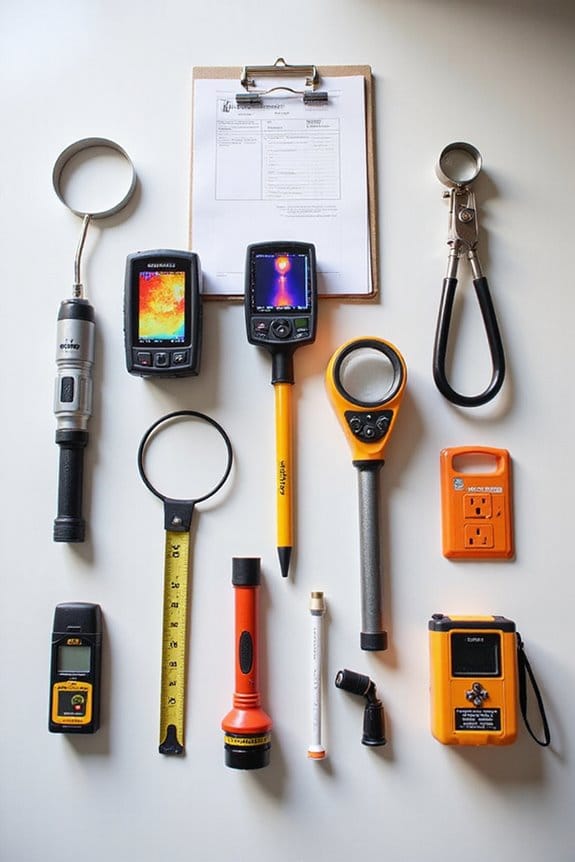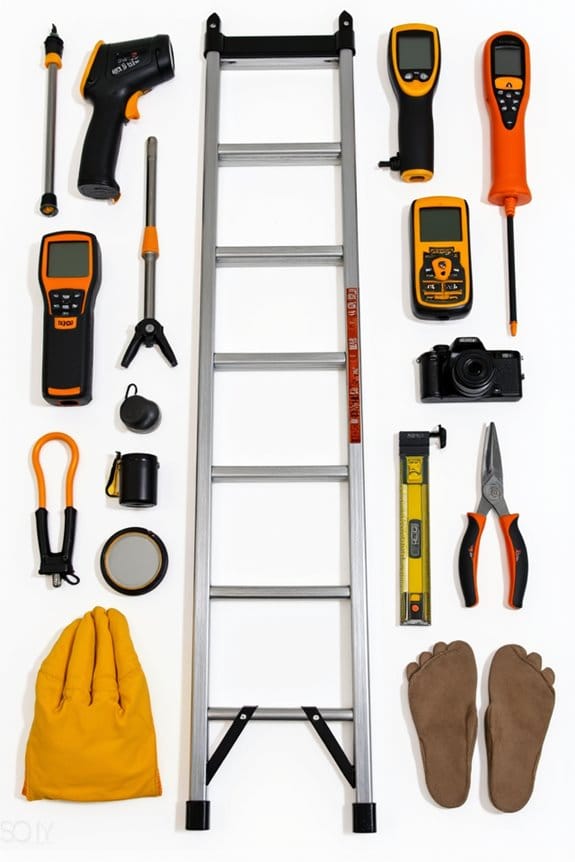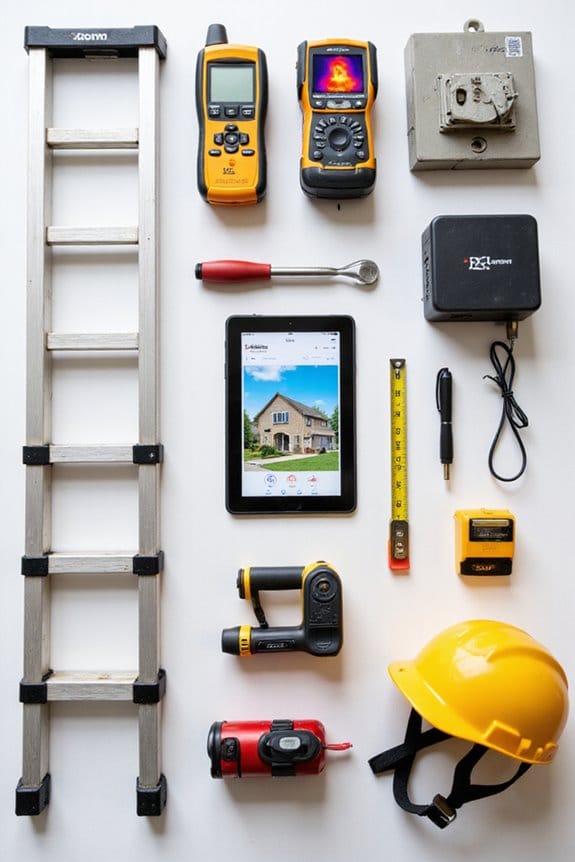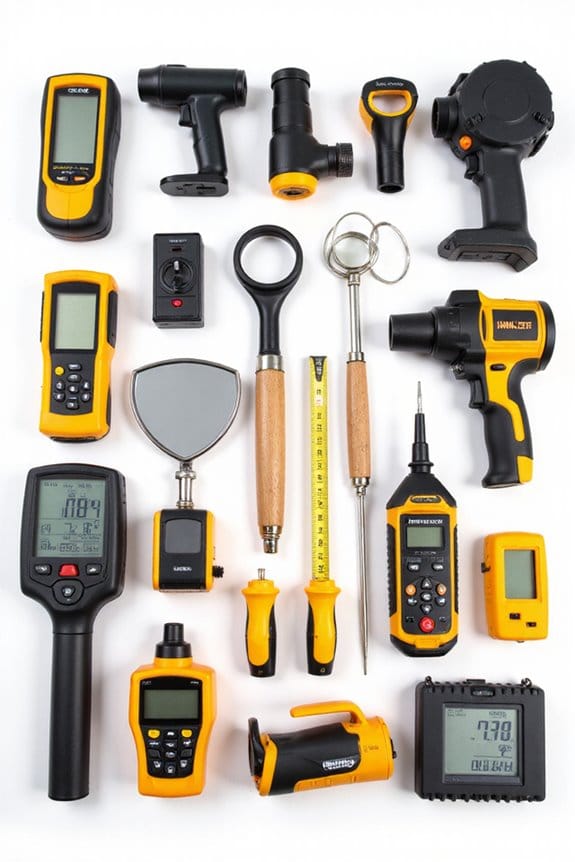Yes, you should definitely be present during the home inspection! This gives you a chance to see potential issues up close and talk directly with the inspector. I recommend you schedule it right after going under contract. Aim to arrive in the last half-hour to discuss findings. This way, you can prepare for negotiations better. Plus, seeing it all in person will boost your confidence. There’s a lot more to take into account that can make the experience even smoother!
Key Takeaways
- Being present during the inspection allows you to see issues firsthand and understand the property’s condition better.
- Attending the inspection facilitates immediate engagement with the inspector for real-time answers to your questions.
- Your presence boosts confidence during negotiations by providing firsthand knowledge of any defects or concerns.
- Observing the inspection promotes clear communication and reduces misunderstandings regarding the inspection report.
- It’s essential to schedule your attendance strategically, ideally arriving in the last 30 to 45 minutes for a review of findings.
Importance of Buyer Attendance
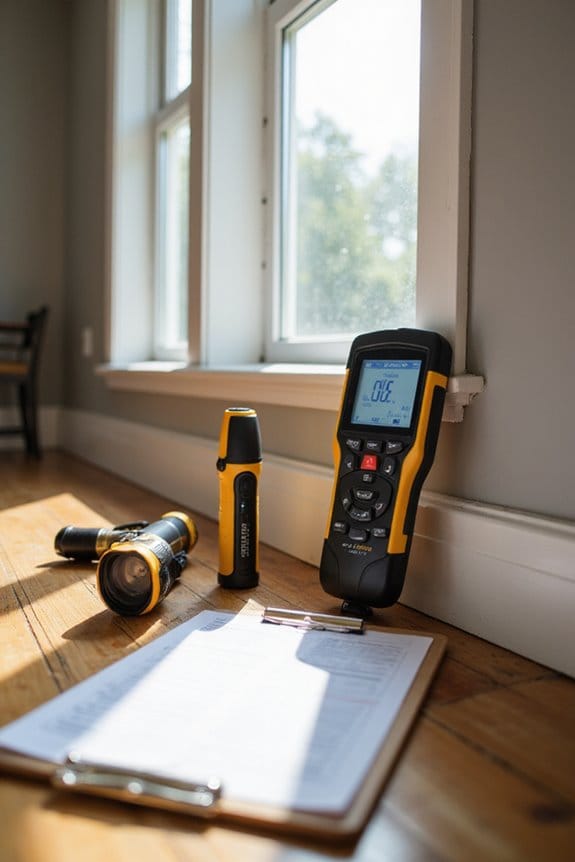
Have you ever wondered why attending a home inspection is so essential? Well, let me tell you, it’s a game changer! Here’s why:
- Extended Exploration: You get 2 to 4 hours to dig deeper into the property, much more than the quick showing.
- Real-Time Knowledge: It’s your chance to see issues firsthand, from structural problems to quirky plumbing.
- Immediate Answers: You can engage with the inspector, asking questions as you go—no waiting for a report!
- Better Negotiations: Seeing defects helps you make informed decisions, boosting your confidence during negotiations.
Optimal Timing for Buyers
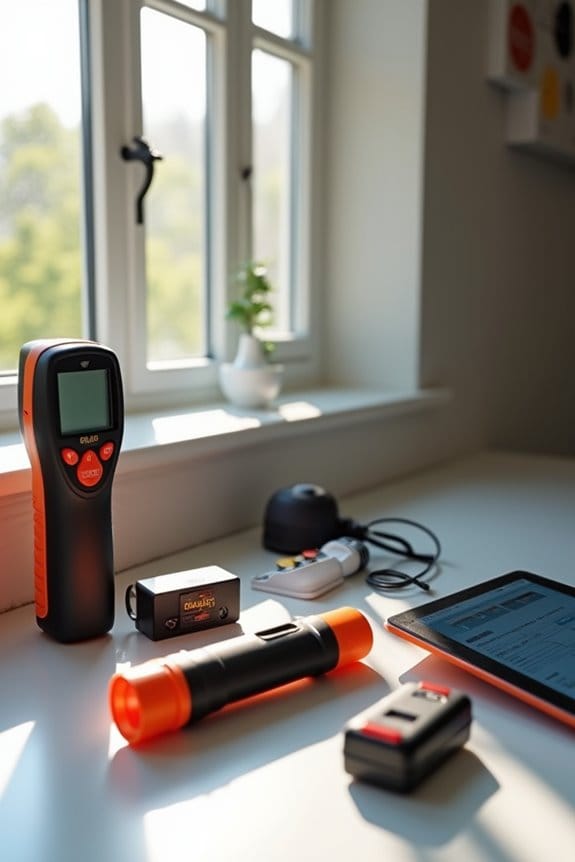
When it comes to scheduling your home inspection, timing can really make a difference. Here are some key points to keep in mind:
- Schedule Early: Once you’re under contract, book your inspection right away. This helps you avoid scheduling conflicts, especially during busy seasons.
- Timing Matters: Aim to arrive during the last 30 to 45 minutes of the inspection. This way, you can review findings without distracting the inspector during the inspection duration.
- Use Your Option Period: Completing the inspection before the objection deadline is essential. It gives you time to address any deal-breaking issues.
- Take the Unexpected into Account: Allow buffer time for additional evaluations or follow-ups. This keeps your stress levels down and guarantees you’re well-prepared for negotiations.
Happy inspecting!
Inspector and Buyer Interaction Etiquette
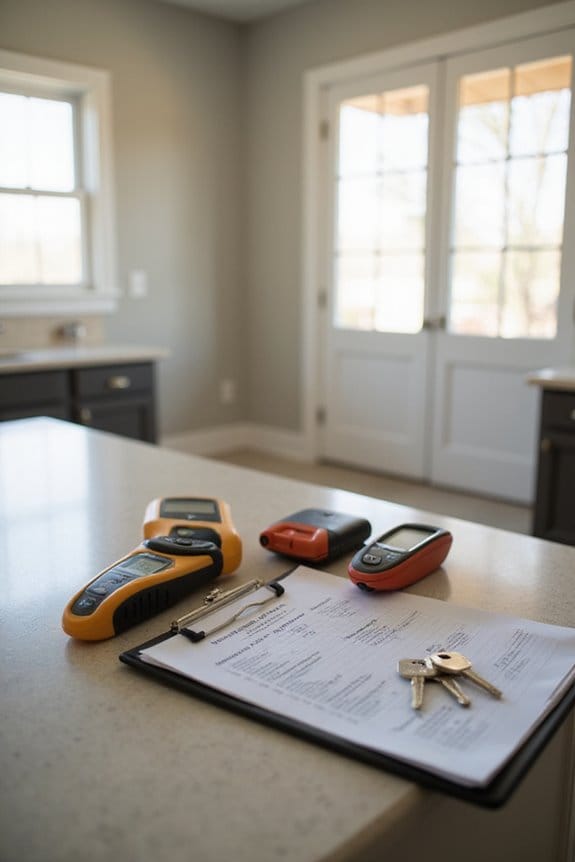
Understanding how to interact with your inspector can really enhance the home inspection experience. Here are some etiquette tips to keep in mind:
- Respect Their Process: Avoid interrupting the inspector’s routine; let them do their job. Remember, their demeanor is focused on thoroughness.
- Ask Relevant Buyer Questions: When you do have questions, keep them concise and related to what’s currently being inspected.
- Stay Engaged: Follow the inspector closely, but don’t obstruct their view or access.
- Limit Distractions: Leave extra guests at home to maintain focus and keep the inspection efficient.
Seller and Agent Attendance Considerations
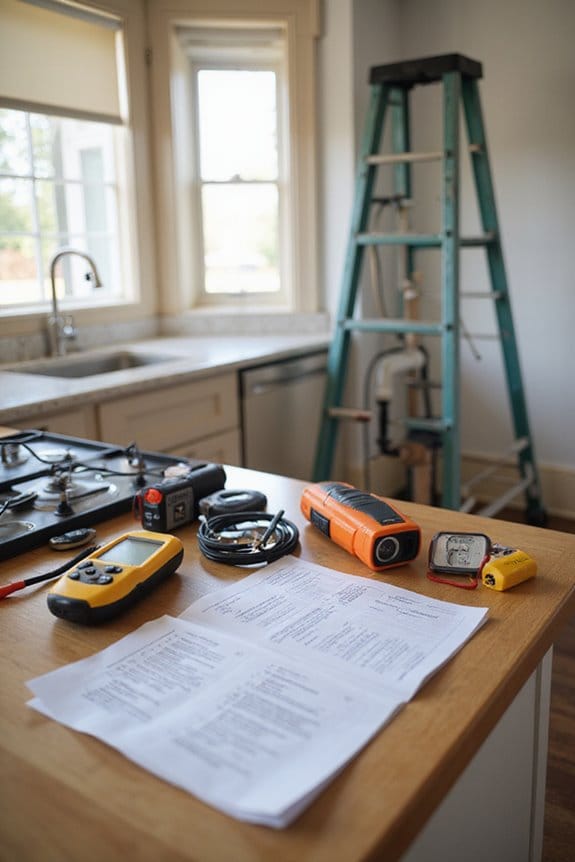
While it might seem like a good idea for sellers to stick around during home inspections, they’re usually not required to be there. Here are some considerations:
- Seller Presence: Many sellers choose to vacate to let the inspector do their job without distraction. It’s often best for everyone involved.
- Agent Participation: The seller’s agent typically doesn’t need to attend unless there are special circumstances. However, they can help clarify property details if needed.
- Respectful Approach: If sellers do attend, it’s essential to remain non-intrusive. This fosters a smoother inspection process.
- Communication: Good communication between all parties guarantees everyone knows who can attend, preventing any awkward situations.
Tenant and Landlord Rental Property Inspections
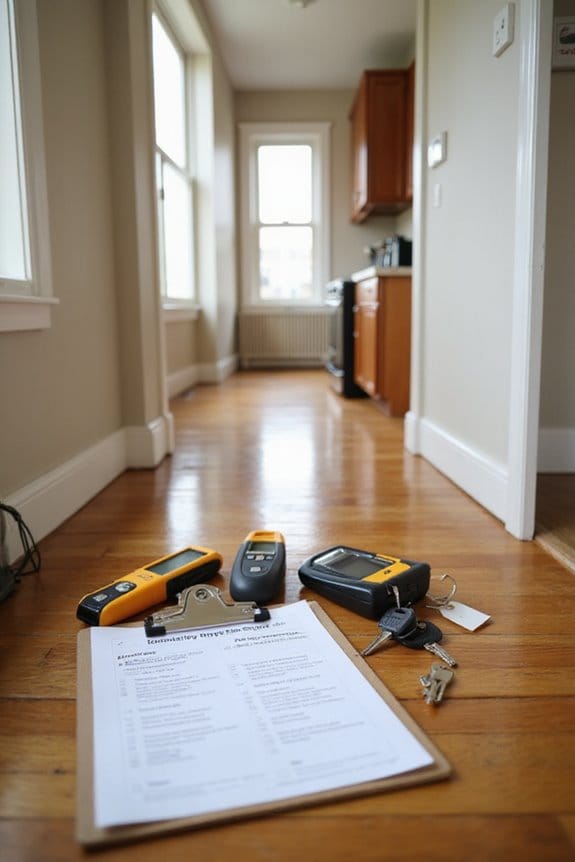
Have you ever wondered how inspections work in rental properties between tenants and landlords? It’s important to know your tenant rights and landlord responsibilities. Here’s a quick breakdown:
- Advance Notice: Landlords usually need to give at least 12 hours’ notice before entering for inspections.
- Reasonable Hours: Inspections typically occur during normal business hours, which is fair, right?
- Emergency Exceptions: If there’s an emergency, landlords can enter without notice.
- Tenant Presence: You don’t have to be there, but you can be if it makes you comfortable.
- Privacy Matters: Remember, landlords shouldn’t abuse their right to enter. It’s about respect, not a surprise party!
Understanding these points helps guarantee a smoother inspection process for everyone involved.
Benefits of Being Present During Inspection
Being present during an inspection can actually work in your favor, especially when it comes to understanding the property’s condition. Here are some key inspection benefits I’ve noticed:
- Direct Observation: I get to see property issues firsthand, reducing any potential misunderstandings in the report.
- Engagement with the Inspector: I can ask questions on the spot, which clears up any confusion right away.
- Negotiation Power: With firsthand knowledge, I can effectively negotiate repairs or price adjustments based on what I’ve seen.
- Educational Opportunity: Inspectors often share maintenance tips, helping me prepare for ownership.
- Transparent Communication: It promotes a cooperative vibe, easing the stress of the transaction. So, I highly recommend being there!
Impact of Non-Attendance on Inspection Quality
When you skip attending an inspection, it can really impact the quality of the whole process. Here are some ways non-attendance can hurt inspection quality:
- Inspection Oversight: Without your presence, inspectors may miss key details and defects that could be clarified in real-time.
- Communication Breakdown: Face-to-face dialogue is essential. Not being there can lead to misunderstandings and delayed feedback.
- Accuracy Issues: Inspectors benefit from having subject matter experts like you around to verify everything’s accurate.
- Stakeholder Trust: Your absence may lower confidence in the inspection outcomes, leaving everyone wondering about the thoroughness.
Making the Most of Your Attendance
Attending an inspection isn’t just about checking a box; it’s your opportunity to gain valuable insights that you might miss otherwise. Here’s how you can make the most of your attendance:
- Prepare with Purpose: Do a little inspection preparation beforehand. Know what to look for, especially in systems like HVAC or plumbing.
- Use Observation Techniques: Pay attention to the inspector’s findings. Ask questions if something doesn’t make sense.
- Engage Actively: Don’t hesitate to clarify concerns on the spot. This helps reduce surprises later.
- Learn for the Future: Take notes on how systems operate; it’ll help you with maintenance down the road. Additionally, understanding video quality standards can improve your knowledge of how surveillance systems function.
Frequently Asked Questions
Can I Bring My Family or Friends to the Inspection?
You can definitely bring family or friends to the inspection! I found that their involvement helps, but it’s important to keep the focus on the inspector’s work. Just let the inspector know in advance.
What Should I Do if I Can’T Attend the Inspection?
If I can’t attend the inspection, I’d arrange for a trusted friend or a virtual inspection. I’d make certain the inspector knows my preferences and request detailed inspection reports to grasp every vital detail later.
How Long Does a Typical Home Inspection Take?
A typical home inspection usually lasts between 2 to 4 hours, depending on the home’s size and condition. I’ve found that the average time can vary considerably, especially with larger or older properties.
Are There Any Fees if I Don’T Attend?
I once missed a flight and paid hefty fees. Similarly, if I skip an inspection, I could face inspection fees for missed appointments. Always check your contract to avoid unexpected costs. Knowledge is power!
Can I Reschedule the Inspection if I’M Unavailable?
If I’m unavailable, I can explore rescheduling options. However, I must consider the inspection timing—some policies may limit my ability to change the date without facing fees or penalties. It’s best to act quickly.

